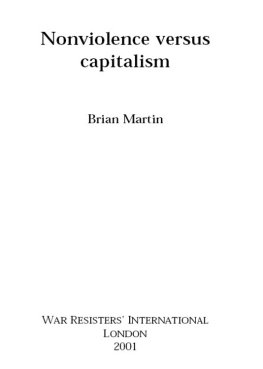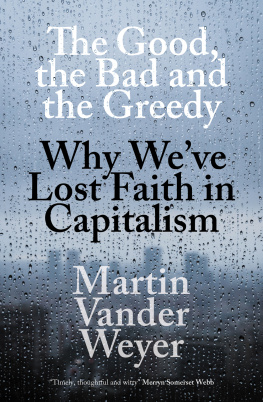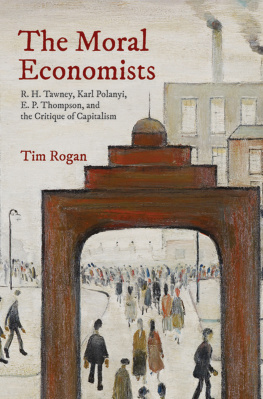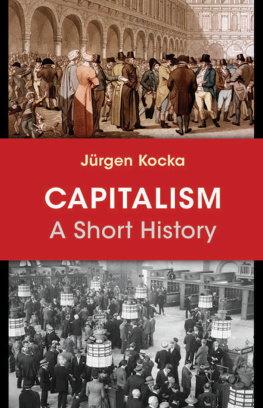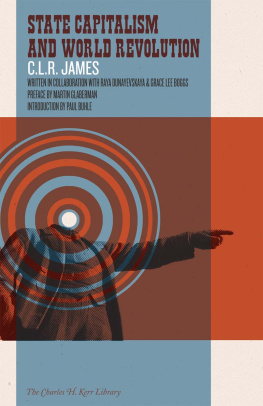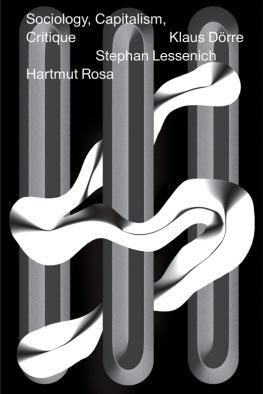
Capitalism and Critique
While there are signs of recovery from recent economic collapses, relatively few protective measures are in place in the United States to prevent future crises and widespread destruction of livelihoods around the globe.
This book, a follow-up and further development of Martins and Torres ideas in their acclaimed Savage State: Welfare Capitalism and Inequality, contains a synthesis and critique of economic theory with historical case studies and new discourse on American globalism and its failures to provide for the economic security of millions of people. Since the original publication over ten years ago, there has been a resurgence in radical political economy and critical theory. Instead of demonizing the market, Capitalism and Critique draws lessons from the new directions in social theory and seeks clear solutions for future modes of capitalism.
Edward J. Martin, Ph.D., teaches at the Graduate Center for Public Policy and Administration, California State University, Long Beach. He is co-author (with Rodolfo D. Torres) of Savage State: Welfare Capitalism and Inequality and his areas of research focus on political economy, welfare policy, and inequality. He is Editor-in-Chief of the International Journal of Economic Development and his publications have appeared in New Political Science, Contemporary Justice Review, International Journal of Public Administration, and Social Policy. He has also published in CounterPunch, Dissident Voice, and Axis of Logic. Professor Martin received his Ph.D. from Arizona State University.
Rodolfo D. Torres is Professor of Urban Political Economy in the Department of Planning and Public Policy at the University of California, Irvine, where he also serves as director of the Latino Urban Theory Lab. He is recipient of the Adam Smith Foundation Fellowship at the University of Glasgow, where he also held a non-residential visiting professorship in the Department of Sociology. Torres has a long-standing interest in cultural political economy, metropolitan economic restructuring, Mexican American labor and class politics, radical urbanism, and Marxist traditions of state theory and class analysis. He is author or editor of more than fifteen books and 100 book chapters and articles. His most recent book is The Latino Question: Politics, Laboring Classes, and the Next Left, published by Pluto Press.
Mateo S. Pimentel is a graduate student in the Ph.D. program for Human and Social Dimensions of Science and Technology at Arizona State Universitys School for the Future of Innovation in Society. Mateo is a USAID Research and Innovation Fellow, Global Development Research Scholar, and Assessment Coordinator for the NASA-sponsored Visions, Ventures, Escape Velocities project. He is a former Jesuit Volunteer.
Practical and visionary, this stylish and hard-hitting book shows that there are compelling democratic alternatives to the miseries produced by neoliberalism.
David Roediger, University of Kansas, andAuthor of Class, Race, and Marxism
Much needed during these times, Martin, Torres, and Pimentel have written a brilliant analysis of our society and its core issues. I find their book indispensable. Just as impressive, they do not abandon the reader without thoroughly working through solutions to the problems they interrogatethe capitalist political economy. This is a rarity among books critical with the current status quo.
Mark Gottdiener,State University of New York
In these times of escalating economic crisis and social unrest, Martin, Torres, and Pimentel have provided us with a timely and urgent critique of neoliberal capitalism. All those who seek a just and sustainable future should study their proposals for taming the tyranny of the market and constructing a democratic political economy.
William I. Robinson,University of California at Santa Barbara
Capitalism is being transformed before our eyes. This has implications not only for prosperity but also for democracy and geopolitics. To help us grasp both the crises and power of capitalism, we need to reach beyond economic orthodoxy. This book provides a brief, clear guide to the alternative perspectives offered by different schools of political economy. It will help readers develop a critical perspective on capitalism and on related struggles for justice.
Craig Calhoun, Senior Advisor and past President of the Berggruen Institute, and former Director of the London School of Economics and Political Science
Capitalism and Critique
Unruly Democracy and Solidarity Economics
Edward J. Martin, Rodolfo D. Torres, and Mateo S. Pimentel
First published 2019
by Routledge
711 Third Avenue, New York, NY 10017
and by Routledge
2 Park Square, Milton Park, Abingdon, Oxon, OX14 4RN
Routledge is an imprint of the Taylor & Francis Group, an informa business
2019 Taylor & Francis
The right of Edward J. Martin, Rodolfo D. Torres, and Mateo S. Pimentel to be identified as authors of this work has been asserted by them in accordance with sections 77 and 78 of the Copyright, Designs and Patents Act 1988.
All rights reserved. No part of this book may be reprinted or reproduced or utilised in any form or by any electronic, mechanical, or other means, now known or hereafter invented, including photocopying and recording, or in any information storage or retrieval system, without permission in writing from the publishers.
Trademark notice: Product or corporate names may be trademarks or registered trademarks, and are used only for identification and explanation without intent to infringe.
Library of Congress Cataloging-in-Publication Data
A catalog record for this title has been requested
ISBN: 978-1-138-36554-4 (hbk)
ISBN: 978-1-138-36561-2 (pbk)
ISBN: 978-0-429-43065-7 (ebk)
Typeset in Bembo
by Out of House Publishing
For Bernie
from whom we learned to be
realistic and demand the impossible
Tom Hayden, in memoriam.
Dec 11, 1939Oct 23, 2016 (age 76)
A champion of participatory economics and democracy.
Contents
The purpose of our book Capitalism & Critique is to provide a framework to continue this project of social justice through an ongoing class analysis and the moral justification for economic rights as human rights. For this I am in debt to Bernie Sanders, Cornel West, Christopher Hedges, and the Reverend William Barber. Thus, I dedicate this book to them and Pope Francis I, who warns that, as long as the problems of the poor are not radically resolved by rejecting the absolute autonomy of markets and financial speculation and by attacking the structural causes of inequality, no solution will be found for the worlds problems or, for that matter, to any problems (Laudato Si, 2015).
Finally, in thanks and gratitude to my wife Sarah for her loving support during this project, my three children who have become a source of solidarity in my work and my colleagues in the academy for their contributions to justice and human rights without which this project would be impossible ... y por los pobres, las flores del pueblo.




